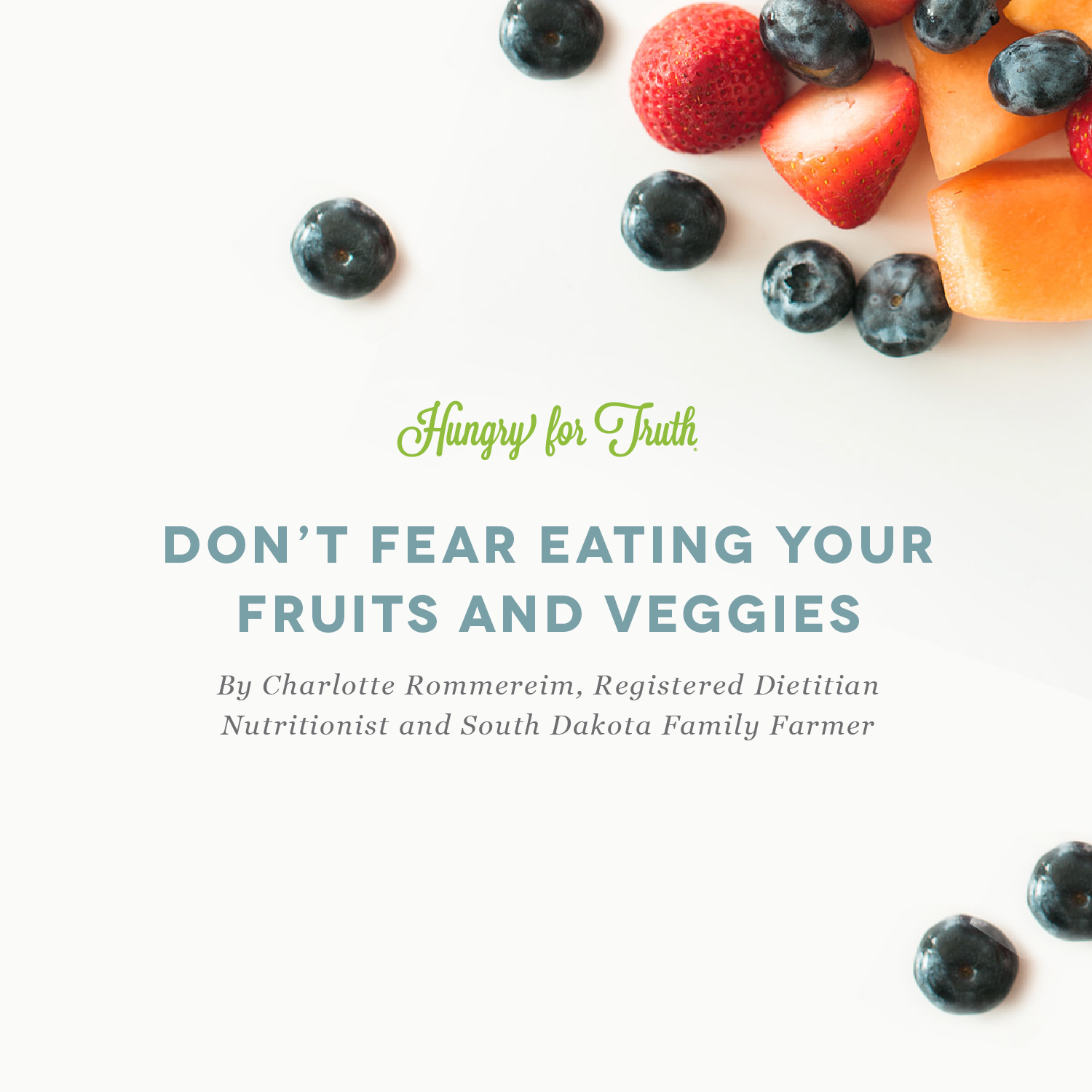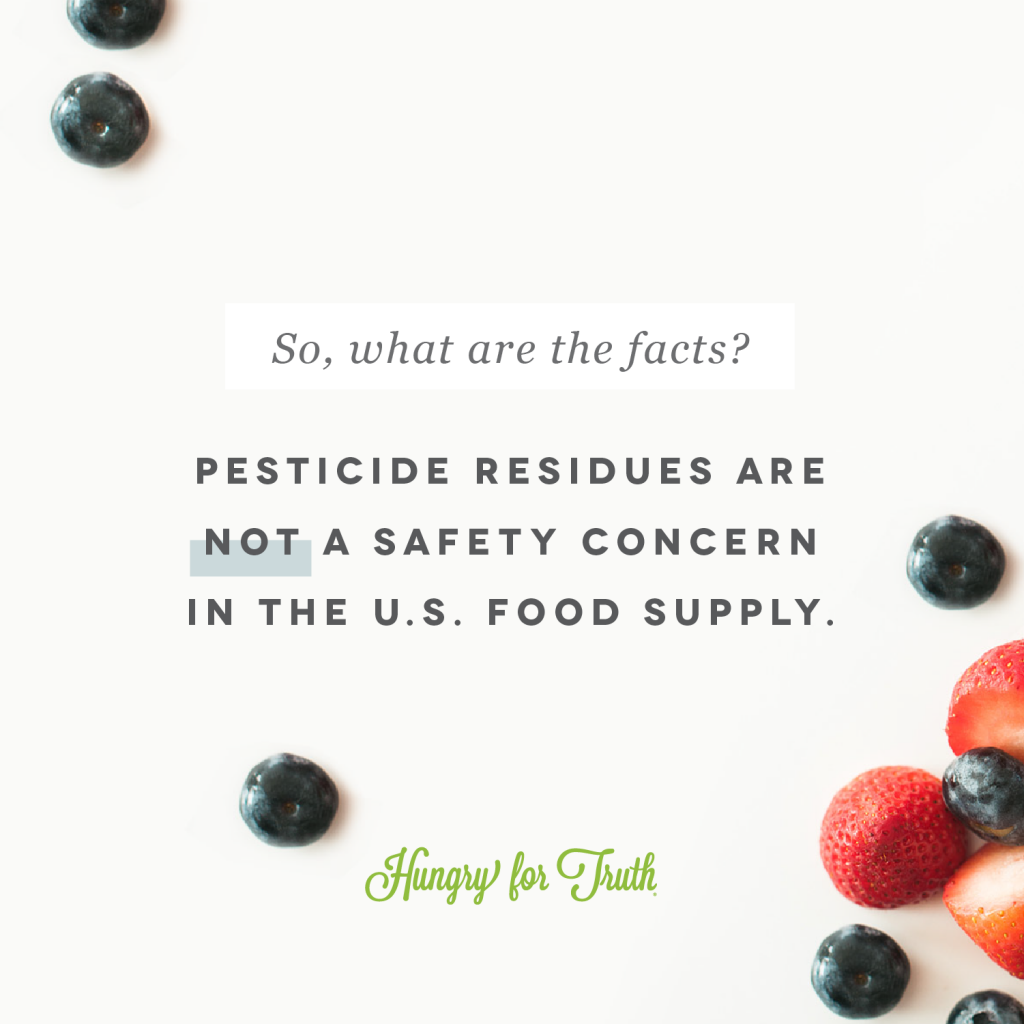Don’t Fear Eating Your Fruits and Veggies
You have probably heard it said, “Eat more fruits and vegetables.” Health experts agree increasing plant-based foods in your diet has important health benefits. Fruits, vegetables, whole grains and soy protein sources have nutrients that help prevent heart disease, stroke and some cancers. In addition, making lower calorie foods like fruits and vegetables a larger portion of your diet may help you manage your weight.
With these positive benefits, we should be increasing our consumption of plant-based foods, but because of confusing messages about the safety of conventional and organic foods, studies show shoppers buy fewer fruits and vegetables.
As a dietitian, I encourage a healthy diet with a variety of fruits, vegetables, grains, dairy products and protein sources like lean meats and soy protein. It’s concerning to me that fear may be keeping people from safe, affordable food. Because I am a family farmer, a dietitian and I also listen to scientists, I know we have a safe food supply. We should let facts, not fear, guide our food choices.
So, what are the facts?
Pesticide residues are not a safety concern in the U.S. food supply.
Both conventional and organic farmers rely on synthetic or natural pesticides as a tool to control pests and diseases on their crops, and these pesticides are regulated to ensure the safety of our food. They apply them very carefully and use just the right amount to protect crops. With all produce, follow the FDA recommendation and take this simple step: Just Wash It. You will be removing any dirt, bacteria and pesticide residue, if there is any, that may be on your produce.
A pesticide residue calculator found on the Alliance for Food and Farming website gives a great perspective on any concerns about pesticide residue you may have. It shows, for example, my grandson could consume 181 servings of strawberries in one day without any effect, even if the strawberries had the highest pesticide residue ever recorded for strawberries by the USDA. I want my grandson to benefit from the vitamin C, potassium, folate, fiber and antioxidants in strawberries, and know I can safely share my favorite fruit with him.
The fact is the health benefit of increasing your fruit and vegetable intake should far outweigh any concerns about pesticide residues. Fruits and vegetables can be consumed in any form to provide you with the nutrients you need: fresh, frozen, canned, dried and 100 percent fruit or vegetable juice. The amount of fruits and vegetables you need daily depends on your age, gender and level of physical activity. However, aiming for half of your plate to contain fruits and vegetables is a great place to start.
Still concerned about potential pesticide residues? We’ve got tips on how to properly wash your produce. Be sure to leave any questions for Charlotte in the comments.



